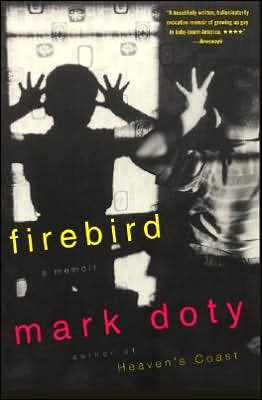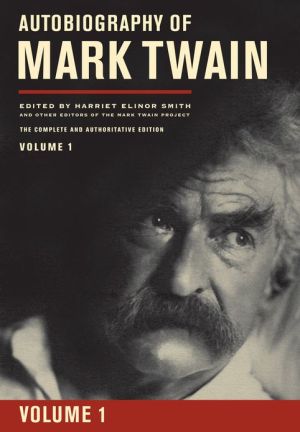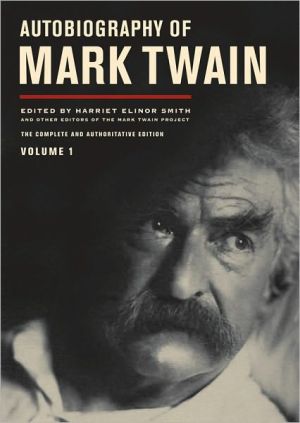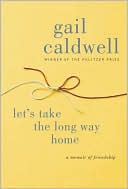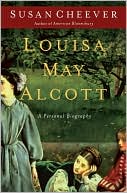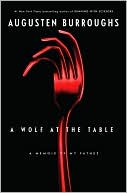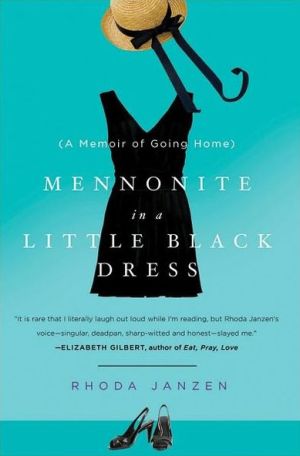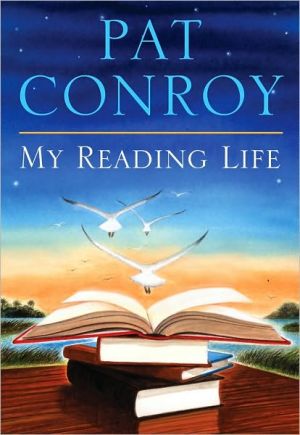Firebird: A Memoir
In Firebird, Mark Doty tells the story of a ten-year-old in a top hat, cane, and red chiffon scarf, interrupted while belting out Judy Garland's "Get Happy" by his alarmed mother at the bedroom door, exclaiming, "Son, you're a boy!"\ Firebird presents us with a heroic little boy who has quite enough worries without discovering that his dawning sexuality is the Wrong One. A self-confessed "chubby smart bookish sissy with glasses and a Southern accent," Doty grew up on the move, the family...
Search in google:
In Firebird, Mark Doty tells the story of a ten-year-old in a top hat, cane, and red chiffon scarf, interrupted while belting out Judy Garland's "Get Happy" by his alarmed mother at the bedroom door, exclaiming, "Son, you're a boy!"Firebird presents us with a heroic little boy who has quite enough worries without discovering that his dawning sexuality is the Wrong One. A self-confessed "chubby smart bookish sissy with glasses and a Southern accent," Doty grew up on the move, the family following his father's engineering work across America-from Tennessee to Arizona, Florida to California. A lyrical, heartbreaking comedy of one family's dissolution through the corrosive powers of alcohol, sorrow, and thwarted desire, Firebird is also a wry evocation of childhood's pleasures and terrors, a comic tour of American suburban life, and a testament to the transformative power of art. Salon - Jaime Manrique Adversity, which can destroy people, often fertilizes the ground for artists. It has certainly done that for Mark Doty. His first two volumes of poetry, Bethlehem in Broad Daylight (1987) and Turtle, Swan (1991), introduced us to a promising poet. In his third volume, My Alexandria (1993), Doty -- responding to the dreadful losses of the AIDS epidemic -- had breakthroughs both in range and in artistic maturity. In that collection, the poem "With Animals," a relentless lament on the need of all creatures to cling to life even under the most horrifying circumstances (and surely one of the finest poems written in our time), demonstrated the poet's flair for dramatic narrative; it wasn't hard to imagine him eventually trying his hand at fiction or memoir. Since My Alexandria, Doty has published two books of poems that are increasingly masterful in formal terms yet are overly preoccupied with word stitchery and are often lacking in a sense of urgency. Recently he has been stronger as a memoirist. In 1996, he published Heaven's Coast, a much-acclaimed account of the death of his lover from AIDS. With Firebird, his new memoir, he has written his most satisfying book. Firebird tells two overlapping stories. The first is a fairly conventional portrait of the artist as a young man, with the added twist that Doty had to come to terms with his homosexuality at a time when there were few role models and when attitudes were more hostile than they are today. I warmed slowly to this part of the story, since his narrative of his early life in Tennessee, teeming though it is with telling and lovely details about the South, is territory that Truman Capote, Harper Lee, Katherine Anne Porter, Eudora Welty and Carson McCullers have covered much more successfully. Doty writes at considerable length about things that would have been better dealt with at a glance. Firebird comes into sharper focus after Mark and his parents move to Tucson, Ariz. His older sister, Sally, gets married and stays behind. Later she makes a memorable re-entrance as a divorcee and ex-convict who turns tricks to make a buck. Doty's lyrical re-creation of the Southwest's parched landscape is one of the book's enormous pleasures: The city of Tucson, with its creosote-scented twilights, dry arroyos and dust storms, becomes another character. It is in Tucson that the unforgettable story of the author's mother, which forms the core of the memoir, begins to emerge. A woman with an artistic temperament, Ruth Doty signs up for painting and watercolor lessons and flourishes with new friends who share her interests. But her husband, who works on building projects for the government, can't stand still; the family moves frequently (to Florida, to California, back to Tucson) because he keeps getting into trouble with his supervisors. As Mark grows older, wrestles with his sexuality and explores the world of art -- dance, music, painting, crafts and, later, poetry -- a kind of rigor mortis sets in to his parents' marriage, and his mother's drinking problem escalates until she loses her sanity. Ruth's Gothic behavior brings to mind Blanche DuBois' plunge into madness in A Streetcar Named Desire and Mary Tyrone's drug-ravaged dementia in Long Day's Journey Into Night. The harrowing last chapters of Firebird, leading to the final deracinated days when Ruth lies dying of cirrhosis in a hospital ward, are painful to read, yet they are rendered without any trace of sentimentality or self-indulgence. In these pages, Doty's writing surpasses anything he's ever attempted before and achieves a depth and a clear-eyed splendor that left me bereft and exalted at the same time. What had begun as an oft-told story becomes an authentic tragedy. It's been a while since a book has moved me so, or since a book's appalling beauty has brought to mind the power of great writing to make us feel as if (to paraphrase Emily Dickinson) the top of our head had been taken off. In Firebird, Mark Doty has elevated the story of his troubled family to the stature of myth, and in the process he has written an American classic.
Chapter One\ \ Rainbow Girls\ \ \ \ In 1959, in Memphis, Tennessee, my sister, Sally, became a Rainbow Girl. She'd been initiated, she told me, into a secret society. What did it mean? What were they not allowed to tell? It was my family's year for the sororal; my mother joined the Order of the Eastern Star and wore around her neck a little golden symbol which indicated her membership. I liked their name--ceremonial, vaguely Egyptian--but the simple necklace was far less interesting than the florid ephemera of the Rainbow Girls, the things Sally hid in the treasury of her lowest dresser drawer, mementos of every one of their occasions.\ I am not allowed in her room, but I adore secrets, or rather secrecy's trappings, especially the hidden souvenirs of my sister's beauty, her unseen evenings.\ Memory (stage designer, costumer, expert in theatrical lighting) orchestrates the scene like this: my sister's darkened room, a little summer twilight bluing the window and the chest of drawers. Chifferobe, my grandmother calls it, rich old word that seems itself to smell like a closed drawer; bureau, my father says, polished word, waxy, tobacco colored. This one isn't dark and varnished like my grandparents' stuff, or the hodgepodge of old furniture in the other houses we've lived in; this new blond suite, angular, forward looking, seems a physical expression of my sister's grownupness and privacy. My parents never buy anything new, so who knows where it's come from; they must have had some little flourish of money as well as some burst of interest in style. Or did Sally choose it? She is almost sixteen, I am newly six; she will leave home soon,but we don't know that yet. For now the important thing for me is that she has become a Rainbow Girl. Is that where she is tonight, off with her new sisters? My parents are down the hall in the living room, watching television, far away, absorbed in something that does not concern me, so I am free to pursue my investigations.\ Her room is full of things that might invite my attention: a luscious satin pillow a boyfriend won for her at a fair, with verses written on it in stiff gold cursive and a border of irresistible yellow fringe. An autograph hound, a stuffed dachshund with a lean body of white cloth on which her friends have written salutations and verses and names. A record case made just for 45s, an object that seems feminine and precise, exactly suited to its purpose: beige vinyl fabric, fabric hinges, and when you lift the lid her favorites are revealed, black and glossy. I could pull out the matching phonograph and plug it in, but that wouldn't really interest me much. I like to hear the openings of the songs she likes--"You Ain't Nothin' But a Hound Dog," "Love Me Tender," something by Brenda Lee--but I don't feel like sitting still for the rest of the song; I don't believe I will be rewarded for sustained attention. As I will be, I know with all my heart, the full certainty of my six-year-old power of belief, when I look into the drawer.\ To recollect: that verb's exact, since here in the haze are elements of a collection, an assemblage of things so long unseen they might as well be the stuff of someone else's life. That fringed carnival pillow: I haven't seen that for forty years! And there it is, in sharp focus, weirdly noisy, the fabric crunching slightly when leaned into, its texture unpleasant but also fascinating, as you run a finger across the roughish print of the text and the satin interstices: scribble of a sentimental poem of devotion. And though the devoted and the devotee have long moved on, and the physical pillow vanished decades ago, its texture is precisely available to my fingertips now. Am I a repository of vanished things which float to the surface, slowly, one at a time, each with invisible links to another?\ My raggedy stuffed tiger, for instance, with its green glass eyes--little fragments of the divine fire, alert, energetic, like something out of Blake, though of course I don't think that then. He has long been put away, in the attic of our house on Ramses Street (the front porch has wide columns which taper at the top, a watered-down reference to Luxor). On some excursion with my mother into that hot, sequestered place, reached only by a mysterious collapsing stair that folds down from the ceiling, I've found him again and have taken pleasure in the recognition, a pleasure more complicated than mere affection. The nicely battered tiger is of a time which I think of as the past--of, as it were, childhood's childhood. Now, at six, I have a past; I have an object which refers to who I used to be.\ But the drawer, precious and hermetic, refers to who I am now. And to something else, something veiled, and perhaps there's even a veil inside it, among these scraps of sheer and sparkled treasure. Sally must have shown them to me, proud of her new sense of belonging, though what they meant to her and what they mean to me are quite different things. For her they're evidence of a common bond, proof of sisterhood; for me they are alluring artifacts of difference.\ On my knees in the half dark, I slip the drawer open, and it's like a pirate chest opened in a movie, little glimmers brilliant on the faceted surfaces of the treasures, little musical chimes sounding as if these were audible jewels. No light in the room except the glow emanating from these things, which include: a fan made from stiff folded net fabric--did Sally call it chiffon?\ Firebird. Copyright © by Mark Doty. Reprinted by permission of HarperCollins Publishers, Inc. All rights reserved. Available now wherever books are sold.
Prelude: Perspective Box1Part 1Rainbow Girls11A Book of Archaeology27Beast from the Year 500045Mikey55Firebird63Seventy-six Trombones83Part 2Guest from Nowhere105Valley of the Moon117Samson in the Temple137Wear Your Love Like Heaven149Sorrowful Mother171Fanfare & Finale: Firebird179Acknowledgments199
\ David TullerDoty offers us a lyrical, heartfelt and ultimately haunting account of his early years.\ — Washington Post Book World\ \ \ \ \ Jaime ManriqueAdversity, which can destroy people, often fertilizes the ground for artists. It has certainly done that for Mark Doty. His first two volumes of poetry, Bethlehem in Broad Daylight (1987) and Turtle, Swan (1991), introduced us to a promising poet. In his third volume, My Alexandria (1993), Doty -- responding to the dreadful losses of the AIDS epidemic -- had breakthroughs both in range and in artistic maturity. In that collection, the poem "With Animals," a relentless lament on the need of all creatures to cling to life even under the most horrifying circumstances (and surely one of the finest poems written in our time), demonstrated the poet's flair for dramatic narrative; it wasn't hard to imagine him eventually trying his hand at fiction or memoir.\ Since My Alexandria, Doty has published two books of poems that are increasingly masterful in formal terms yet are overly preoccupied with word stitchery and are often lacking in a sense of urgency. Recently he has been stronger as a memoirist. In 1996, he published Heaven's Coast, a much-acclaimed account of the death of his lover from AIDS. With Firebird, his new memoir, he has written his most satisfying book.\ Firebird tells two overlapping stories. The first is a fairly conventional portrait of the artist as a young man, with the added twist that Doty had to come to terms with his homosexuality at a time when there were few role models and when attitudes were more hostile than they are today. I warmed slowly to this part of the story, since his narrative of his early life in Tennessee, teeming though it is with telling and lovely details about the South, is territory that Truman Capote, Harper Lee, Katherine Anne Porter, Eudora Welty and Carson McCullers have covered much more successfully. Doty writes at considerable length about things that would have been better dealt with at a glance.\ Firebird comes into sharper focus after Mark and his parents move to Tucson, Ariz. His older sister, Sally, gets married and stays behind. Later she makes a memorable re-entrance as a divorcee and ex-convict who turns tricks to make a buck. Doty's lyrical re-creation of the Southwest's parched landscape is one of the book's enormous pleasures: The city of Tucson, with its creosote-scented twilights, dry arroyos and dust storms, becomes another character.\ It is in Tucson that the unforgettable story of the author's mother, which forms the core of the memoir, begins to emerge. A woman with an artistic temperament, Ruth Doty signs up for painting and watercolor lessons and flourishes with new friends who share her interests. But her husband, who works on building projects for the government, can't stand still; the family moves frequently (to Florida, to California, back to Tucson) because he keeps getting into trouble with his supervisors. As Mark grows older, wrestles with his sexuality and explores the world of art -- dance, music, painting, crafts and, later, poetry -- a kind of rigor mortis sets in to his parents' marriage, and his mother's drinking problem escalates until she loses her sanity. Ruth's Gothic behavior brings to mind Blanche DuBois' plunge into madness in A Streetcar Named Desire and Mary Tyrone's drug-ravaged dementia in Long Day's Journey Into Night. The harrowing last chapters of Firebird, leading to the final deracinated days when Ruth lies dying of cirrhosis in a hospital ward, are painful to read, yet they are rendered without any trace of sentimentality or self-indulgence.\ In these pages, Doty's writing surpasses anything he's ever attempted before and achieves a depth and a clear-eyed splendor that left me bereft and exalted at the same time. What had begun as an oft-told story becomes an authentic tragedy. It's been a while since a book has moved me so, or since a book's appalling beauty has brought to mind the power of great writing to make us feel as if (to paraphrase Emily Dickinson) the top of our head had been taken off. In Firebird, Mark Doty has elevated the story of his troubled family to the stature of myth, and in the process he has written an American classic.\ — Salon\ \ \ \ Publishers WeeklyDoty, an award-winning poet (Atlantis) and memoirist (Heaven's Coast) has penned an autobiography of his early years that, while beautifully and sensitively written, is more moving intellectually than emotionally. Using his family history and personal recollections to create a snapshot of the artist as a young child and beyond, Doty portrays the rocky emotional and psychological domestic terrain of his youth and adolescence: his family moved frequently; his mother was severely alcoholic; he hid his crushes on other boys from his homophobic parents while his sister became embroiled in a bad marriage and was imprisoned for breaking into and burglarizing a pharmacy. Doty's personal material is sometimes wrenching--at the story's climax, his mother, drunk, holds him at gunpoint--but he is at his best when describing his relationship to the idea of beauty and how it influenced his growth as an artist. From watching monster movies and listening to classical music as a child to participating in drama class and singing along to pop songs such as Petula Clark's "Downtown" as he grew older, Doty details his evolution as a poet. Through it all, he casts his tragic relationship with his mother as a touchstone for his love of art, relating how he moved from his childhood recognition that "my relationship with my mother is immense... and occupies so much space I can barely see around it" to an adult understanding that she "taught me the things that would save me, and then... she taught me I wasn't worth saving." In the end, Doty's story illuminates his poetry, but it doesn't match its power. (Oct.) Copyright 1999 Cahners Business Information.\ \ \ \ \ Newsweek MagazineThe poet's beautifully written, halucinatorily evocative memoir of growing up gay in baby-boom America. (Rated 4 out of 5 stars.)\ \ \ \ \ David Bahr[A] remarkable memoir of his childhood... in composing the incandesent Firebird, he transforms a painful early life into a lasting work of art.\ — Time Out: New York\ \ \ \ \ Kirkus ReviewsA bittersweet portrait of the artist as a young homosexual, coming to terms with his parents and finding that "the thing that harms turns out, sometimes, to be the very thing that restores." After writing through the death of his lover in his previous memoir, Heaven's Coast (1996), poet Mark Doty uses the visual tricks of a 17th-century Dutch perspective box as a metaphors for a series of linked autobiographical essays. In the same way the box distorts finely modeled objects so that they appear in perspective when viewed through a lens, so does Doty hope to bring order to the uncertain memories and unresolved emotional turmoil of a peripatetic middle-class youth in the ‘50s and early ‘60s, when his temperamental father built missile silos in the Arizona desert while his prodigal sister spent time in jail, his mother drank herself to death, and the incipient poet found aesthetic ecstasy dancing to Stravinsky's Firebird Suite. Doty is most sympathetic this world's eccentrics, misfits, and social rebels, from his mother's meditating art teacher to the nameless gnome of Moon Valley, a Tucson hermit whose fantastic desert playground remains hidden among the city's suburban sprawl, and finally to Doty's sister Sally, who, after her Jesus-freak husband takes off with a younger girl in the church choir, avenges herself on the male world as a pocket-picking prostitute, only to straighten up and fly right after finding a true gentleman in a bar. There's the standard sexual squirming, trite conformity, and barely repressed violence common to Eisenhower-era bildungsromans, as well as a beautifully balanced take on Doty's mother's unfulfilled life. All that, and some hilarious, HarveyFierstein pratfalls in which Doty figures out that he's gay, relieve Doty's naval-gazing discursions on art, writing, and the making of a poet. A short, effusive, and wisely compassionate backward glance on a life that, while less than the sum of its parts, has healed as much as it has hurt.\ \
